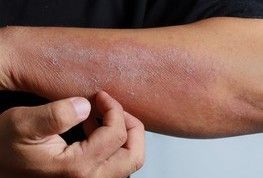Article
FDA Approves Donislecel (Lantidra), an Allogeneic Cellular Therapy, for Type 1 Diabetes
Author(s):
Announced on June 28, 2023, the FDA's approval of donislecel (Lantidra) marks the first approval of an allogeneic pancreatic islet cellular therapy for the treatment of type 1 diabetes.
US Food and Drug Administration logo
Credit: US Food and Drug Administration

The US Food and Drug Administration (FDA) has approved donislecel (Lantidra) for the treatment of type 1 diabetes.
Announced on June 28, 2023, the approval, which makes donislecel the first allogeneic pancreatic islet cellular therapy made from deceased donor pancreatic cells for type 1 diabetes, indicates the therapy for treatment of adults with type 1 diabetes who are unable to approach target glycated hemoglobinbecause of current repeated episodes of severe hypoglycemia despite intensive diabetes management and education.1
“Severe hypoglycemia is a dangerous condition that can lead to injuries resulting from loss of consciousness or seizures,” said Peter Marks, MD, PhD, director of the FDA’s Center for Biologics Evaluation and Research.1 “Today’s approval, the first-ever cell therapy to treat patients with type 1 diabetes, provides individuals living with type 1 diabetes and recurrent severe hypoglycemia an additional treatment option to help achieve target blood glucose levels.”
Granted to CellTrans Inc., the FDA’s approval of donislecel is based on data from a pair of non-randomized, single-arm studies with a total patient population of 30 participants. All participants included in the trial had type 1 diabetes and hypoglycemic unawareness, which the American Diabetes Associaiton defines as the inability to perceive symptoms of hypoglycemia.2 Of note, all participants received at least 1 but no more than 3 infusions of donislecel, which is administered as a single infusion in the hepatic portal vein.1
Results of the studies suggest 21 of the 30 participants no longer need insulin for a year or longer. Further reanalysis indicated 11 participants did not need insulin for 1-5 years and 10 participants required no insulin for more than 5 years. In total, 5 of the 30 participants did not achieve any days of insulin independence.1
Safety data from the trials suggested adverse reactions observed with use varied depending on the number of infusions and length of time they were followed, with the most common adverse reactions being nausea, fatigue, anemia, diarrhea, and abdominal pain. However, the FDA cautioned this may not be reflective the rates observed in practice as a result of the aforementioned limitations.1
According to the FDA, most trial participants experienced 1 adverse reaction to the procedure for infusing donislecel and the use of immunosuppressive medications needed to maintain islet cell viability. The FDA also pointed out some serious adverse reactions required discontinuation of immunosuppressive medications, which resulted in the loss of islet cell function and insulin independence.1
The Biologics License Application for donislecel was the subject of an April 21, 2021 meeting of the FDA’s Cellular, Tissue, and Gene Therapies Advisory Committee. This meeting concluded with a 12-4 vote in favor of the clinical value of donislecel based on the risk-benefit profile.3
In their announcement of the approval, the FDA noted the primary mechanism of action of the therapy is believed to be the secretion of insulin by the infused allogeneic islet beta cells. The FDA also pointed out the cellular therapy was approved with patient-directed labeling to inform patients with type 1 diabetes about benefits and risks of use.1
References:
- Office of the Commissioner. FDA approves first cellular therapy to treat patients with type 1 diabetes. U.S. Food and Drug Administration. June 28, 2023. Accessed June 28, 2023. https://www.fda.gov/news-events/press-announcements/fda-approves-first-cellular-therapy-treat-patients-type-1-diabetes.
- Hypoglycemia (low blood glucose). Hypoglycemia (Low Blood Glucose) | ADA. Accessed June 28, 2023. https://diabetes.org/healthy-living/medication-treatments/blood-glucose-testing-and-control/hypoglycemia.
- CTGTAC April 15, 2021 meeting announcement. U.S. Food and Drug Administration. Accessed June 28, 2023. https://www.fda.gov/advisory-committees/advisory-committee-calendar/cellular-tissue-and-gene-therapies-advisory-committee-april-15-2021-meeting-announcement-04152021.




















